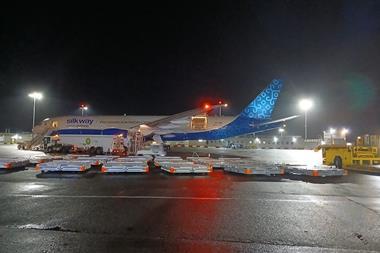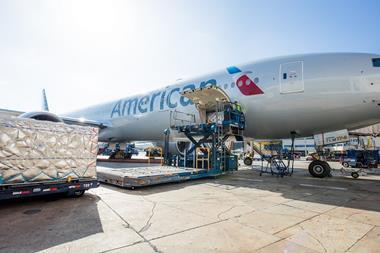Airport trade association ACI Europe has warned of “ongoing uncertainty” over the shape of future rules governing aviation between the UK and the remaining European Union member states (EU27).
As British prime minister Theresa May prepares to trigger Article 50 on March 29, launching two years of complex negotiations over the UK’s exit from the EU (Brexit), ACI Europe said that the aviation industry will be “left in the dark for many more months to come about what will happen”.
Olivier Jankovec, director general of ACI Europe said: “The ‘sequencing’ of the Brexit negotiations means talks will initially focus on agreeing exit terms for the UK, before they eventually come to define the new relationship between the UK and the EU27 as of 2019.
“This implies that the aviation industry will be left in the dark for many more months to come about what will happen.
“Unless quickly resolved, this uncertainty will end up constraining route network development for airports, ultimately affecting air connectivity for their communities. This is due to the fact that airline route planning requires both long lead times and legal certainty.”
Airline flying rights for UK-registered passenger and cargo operators in the EU after Brexit are a thorny issue. Aviation’s ‘seventh freedoms’ are the rights affected directly if an airline is not based in an EU member state.
A seventh freedom allows an airline to operate flights that originate in a foreign country, bypass its home country and deposit passengers or cargo at another international destination.
Michael O’Leary, chief executive of low cost carrier (LCC) Ryanair, has already indicated that a ‘hard Brexit’, seeing the UK forced to leave the European open-skies system, would have an immediate consequence for the Irish Republic-based carrier.
Ryanair, says O’Leary, would then need to establish a separate UK company, of which Ryanair would be able to own a maximum of 49.9%.
Rival LCC, the UK-based EasyJet, is lobbying the UK government and the EU to “ensure the continuation of a fully liberal and deregulated aviation market within the UK and Europe”.
But as part of EasyJet’s contingency planning it has started a formal process to acquire an AOC (air operator certificate) to continue flying across invisible European borders.
ACI Europe added that the Brexit terms for aviation need to be “quickly resolved” to provide clarity for airlines and airports so as to enable “continued investment in growing our collective connectivity”.
The airport trade association also cautioned about the economic consequences of the UK aviation market not remaining closely integrated within the EU27 aviation market.
With Brexit negotiations framed by a strict two-year deadline, one cannot presume an agreement will be reached on exit terms, said ACI Europe, adding: “Failure to do so would mean the UK exiting the EU without the terms of its new relationship with the bloc being clearly defined.
“For aviation, this could well result in market access falling back on more restrictive bilateral provisions between the UK and individual EU27 States — with potentially disruptive effects on air connectivity and the economy."
Speaking at the ACI Airport Economics & Finance Conference in London, Jankovec commented: “As responsible businesses, at this stage we simply cannot rule out a cliff-edged scenario for Brexit and aviation. The potential impact of this on air connectivity, consumers and the wider economy needs to be addressed by Brexit negotiators — on both sides.
“This means that adequate contingencies need to be established promptly in case the UK would exit the EU without any agreement on its future relationship with the bloc.”










